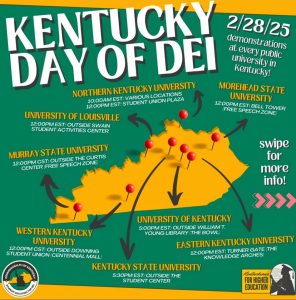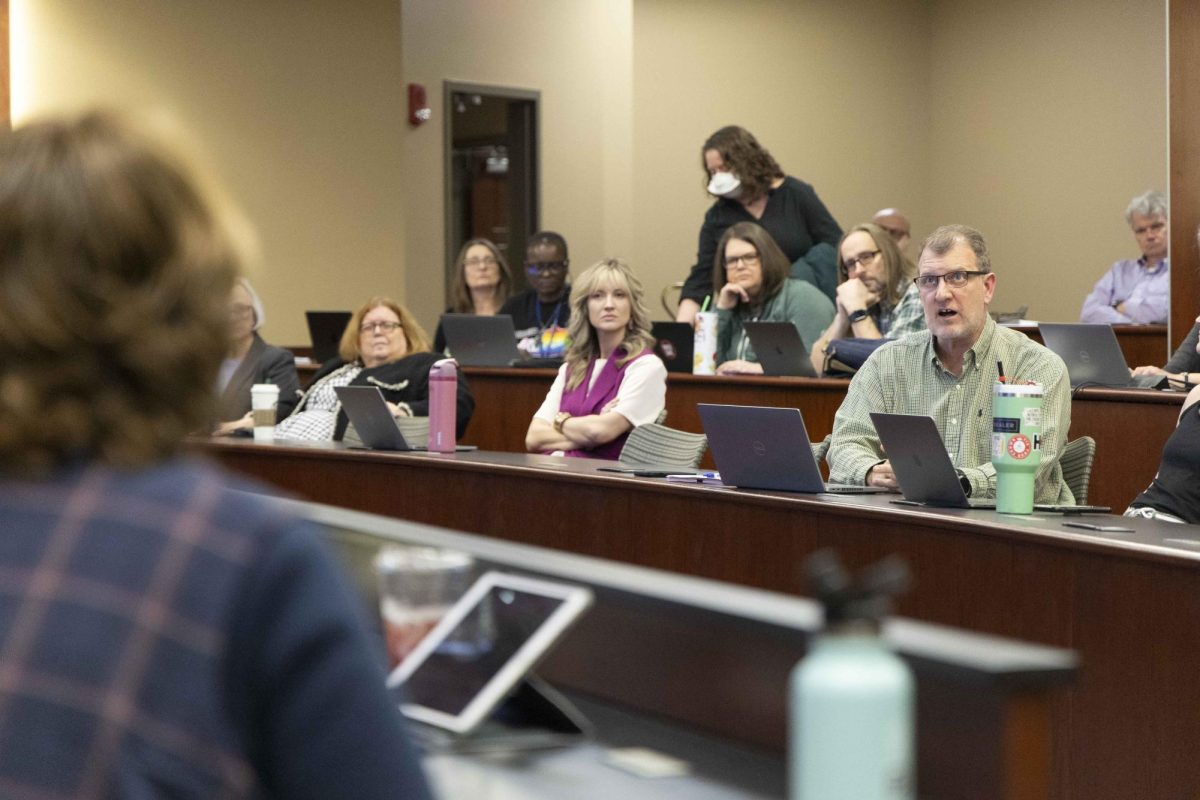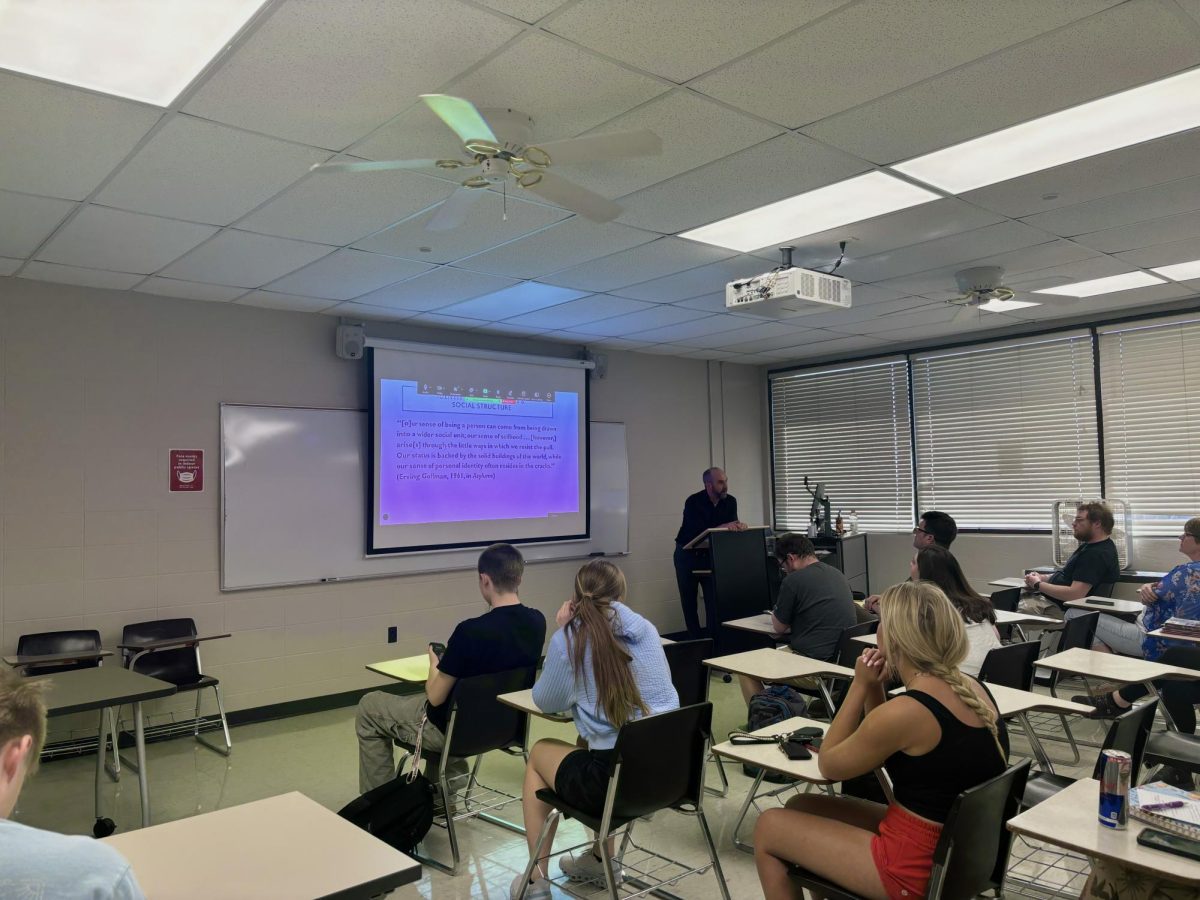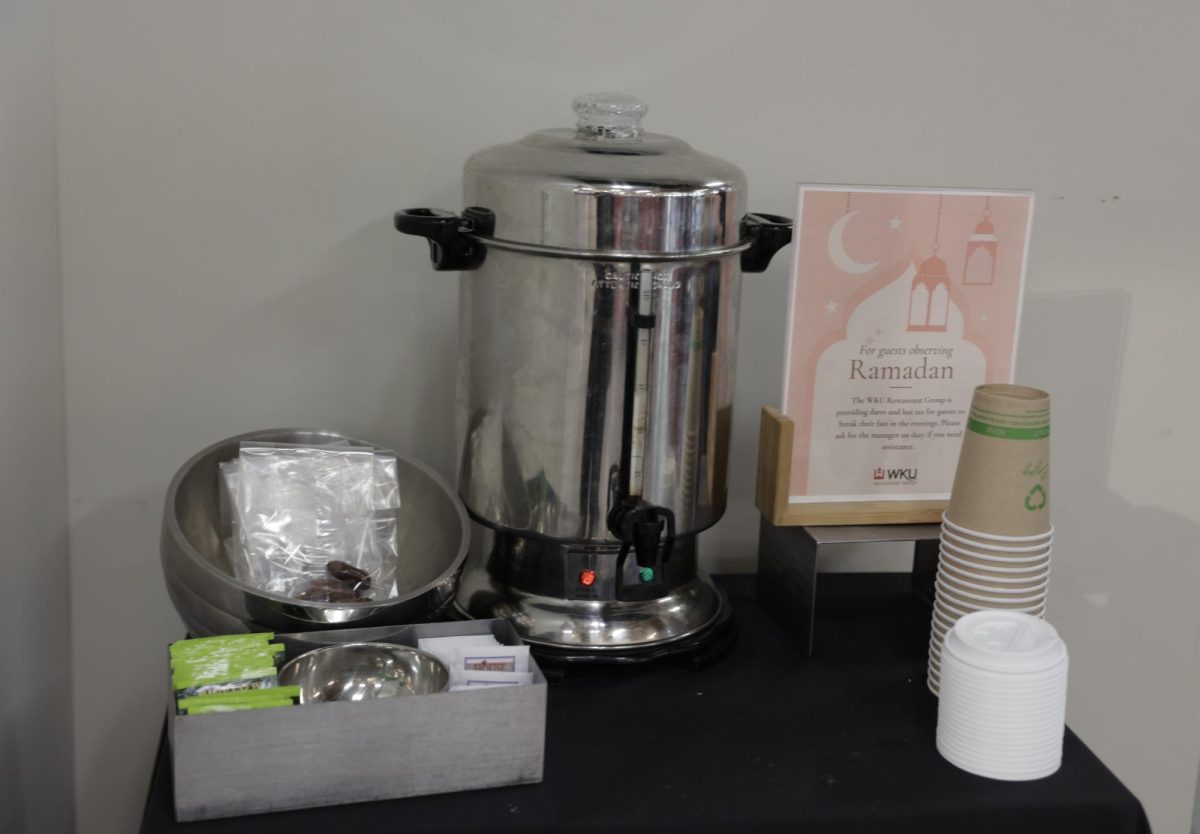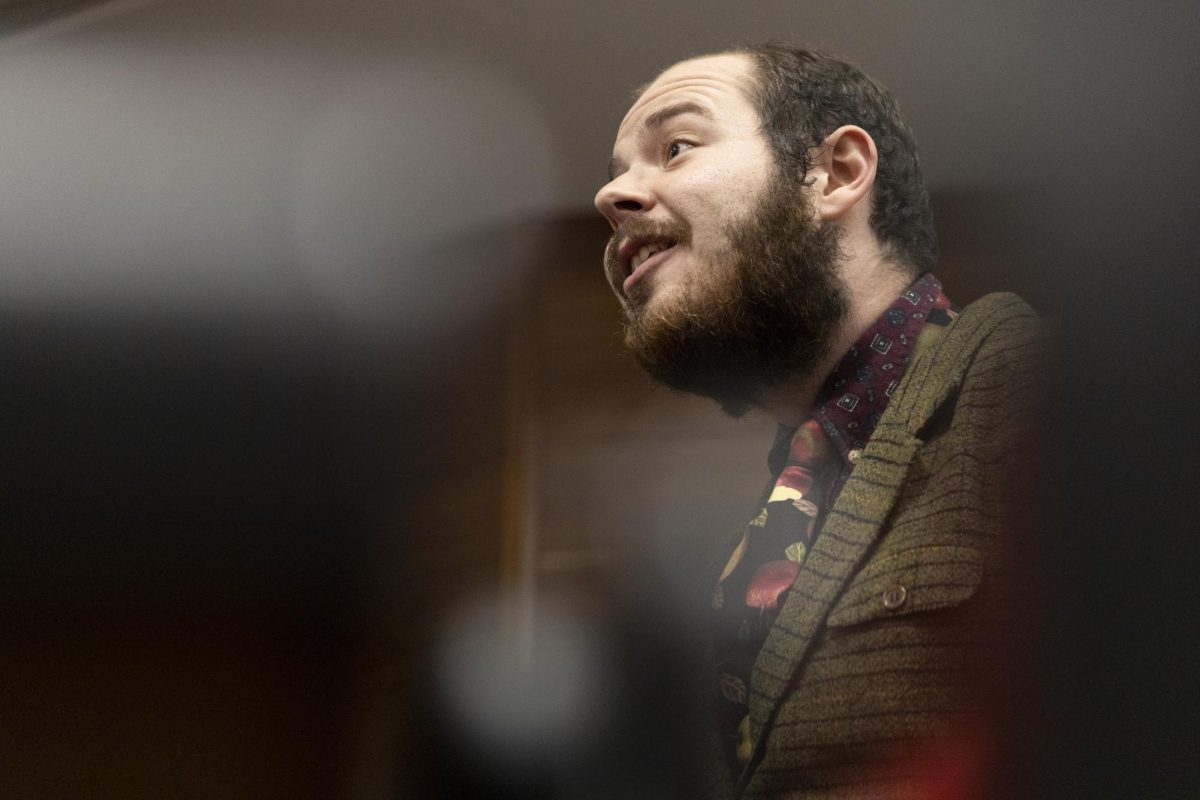Blind horses find a home on Thurman’s Bowling Green farm
December 9, 2011
Ivan and Coco have been inseparable for seven years.
Both horses are blind, and Ivan is reaching the end of his life. He is 27, and Standardbred horses only live to be between 25 and 30.
Coco is getting old too, and she’s sick a lot. But Ivan somehow watches out for her.
And Bowling Green resident Karen Thurman watches out for both of them – along with 55 other blind or disabled horses.
Earlier this year, on the weekend before Labor Day, Thurman was working in the barn all morning before heading back up to her house for lunch. After she ate, Thurman went out to her porch to refill her hummingbird feeder.
“I’m out on the porch and all of a sudden I hear Ivan – he’s got a really loud voice – and he’s screaming for me,” she said.
Thurman went back in the house for a minute and when she came out, Ivan was standing in her yard.
“He had never done this,” she said. “He’d never been out of his paddock.”
Thurman grabbed a dog leash and put it around Ivan’s neck.
“I said, ‘Oh my god, Ivan, what’s going on?'” she said.
Thurman looked across the property and saw Coco, more than a quarter of a mile away, standing in full sun in the 100-degree weather.
“Coco was sick,” she said. “And Ivan came up to tell me that. And you have to understand that he’s completely blind. He’s been blind for maybe 10 years or longer.”
Ivan had walked more than a quarter of a mile in unfamiliar territory to help save Coco’s life. Thurman quickly led both of them into a barn, where Coco collapsed. Thurman said it has been a struggle, but Coco has been recovering.
Thurman owns a 185-acre farm, known as the Rainhill Equine Facility in Bowling Green, that is home to 57 previously abandoned horses.
Thurman, like many young girls, grew up wanting a horse.
She took riding lessons in New York and worked on a farm in California after moving there with her family, but it wasn’t until she came to Kentucky in 1974 that Thurman bought her first horse and farm.
“I had this ridiculous idea that I could actually make money doing something with horses,” she said.
For several years, Thurman gave riding lessons and ran a camp for kids during the summer. In 1990, a man who offered to pay her to take care of his racehorses – 50 of them – approached her.
Thurman suddenly had 72 horses on her farm.
“For a year and a half, that’s what I did,” she said. “Sun up ‘til sunset I took care of his horses. But it was great. I didn’t have to work a job outside the home for once in my life.”
After the man went broke and had to sell those horses, Thurman was forced to pick up extra work in order to pay the bills. For six years she worked 22 hours a day, juggling shifts as a parking technician at WKU and a waitress at Cracker Barrel along with her duties on the farm.
That was when Thurman decided to “take a deep breath” and figure out what she really wanted to do.
“As much as I love the horses, I’m not really wild about the people,” Thurman said. “I’d rather not work with people. So I thought, you know what, I’ll open a rescue. I’ll take a couple skinny horses, I’ll feed them, and it’ll be easy. And if you’ve ever heard the expression ‘Life is what happens when you’re making plans…'”
In 2005, after about a year and a half of application processes, the Rainhill Equine Facility acquired non-profit status from the government. And all of sudden, Thurman started getting phone calls about blind horses.
Every single one of Thurman’s 57 horses has a name, she said, and they all do “amazing things.”
Thurman said she feeds the horses twice a day -100 pounds of grain in the morning and 100 pounds at night. Between food, repairs on the farm and medical care for the horses, Thurman said money can get pretty tight.
“I just do the best I can,” she said.
Most recently, the WKU radio station Revolution 91.7 donated the profits from RevFest, their second battle of the bands event, to the Rainhill Equine Facility.
“We felt that Rainhill was something different than what we’ve ever done before and different from what a lot of other organizations on campus were supporting,” said Stacie Hewitt, program director at Revolution 91.7.
Revolution 91.7 is having another event in the spring that will also benefit the Rainhill Equine Facility.
Thurman said she never sells or tries to find homes for her horses.
“When these horses get to Rainhill, they’ve been through it all,” Thurman said. “There is nobody else who wants them. So, when they finally get there, they get to live out the rest of their lives here.”
When one of her horses needs medical attention, Thurman calls her veterinarian, Eddy Grimes, who works at the Southcentral Veterinary Service in Bowling Green.
Grimes said working with Thurman’s horses has been his first experience with blind horses. The biggest challenge he deals with is possibly startling the animals.
“Horses already have more of a flight response than other species we run into, so the fact that they are blind makes that more difficult,” he said. “You have to talk to them and let them know that you’re there, and sometimes you have to let them come to you.”
Grimes said what Thurman is doing is a huge benefit to owners because it gives them another option once their horse gets sick or goes blind.
“For those owners that don’t want to euthanize an animal, they have the option to let the horse live out the rest of their years instead of something less favorable,” he said.
One of the biggest problems Thurman sees facing horses today is slaughter.
Thurman said she knows she can’t save all the horses, but she does what she can.
“Against all odds, these horses have come from places like killer pens in Maryland,” she said, beginning to cry.
“How does a horse come from a killer pen in Maryland to my house? How did that happen? How does he meet the right people that do that? So my thought is, ‘You must have done something phenomenal that God let you come to live at my house.’ It’s amazing.”










